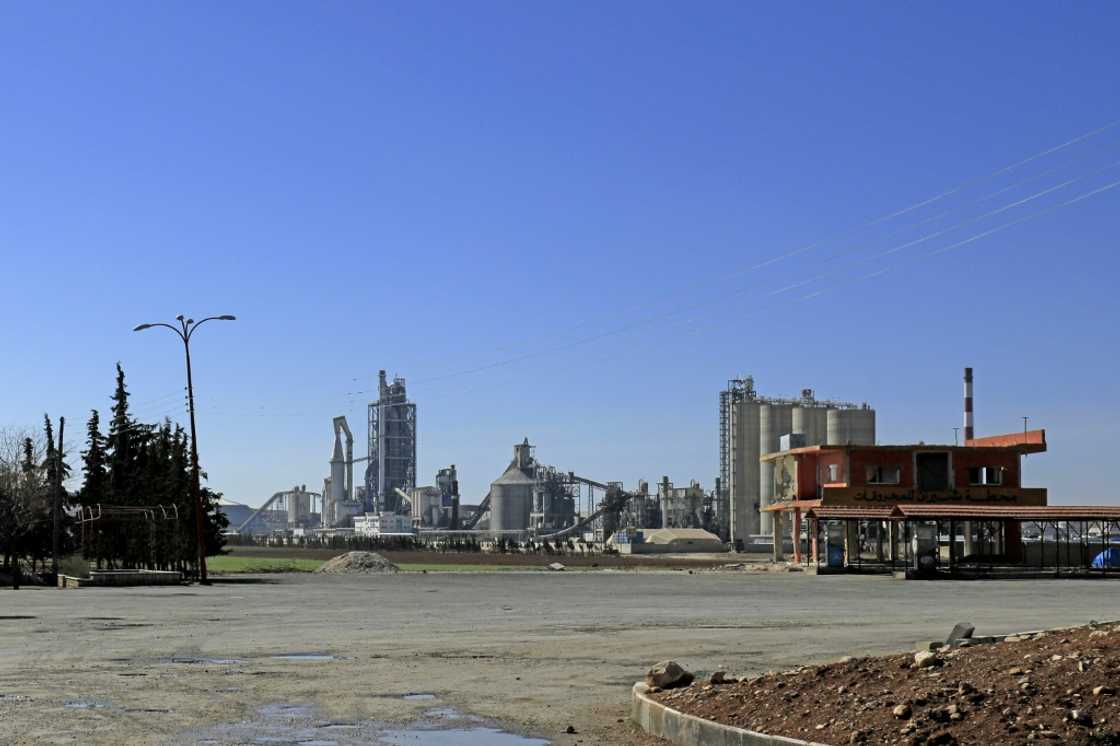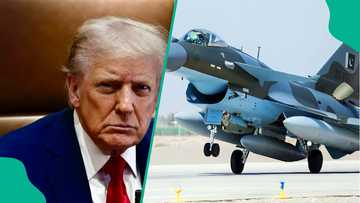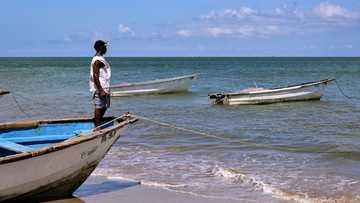Cement maker Lafarge on trial in France on charges of funding jihadists

Source: AFP
Cement group Lafarge goes on trial in France Tuesday, accused of paying the Islamic State group and other jihadists protection money to build its business in war-torn Syria.
In a similar case in the United States, the French firm pleaded guilty of conspiring to provide material support to US-designated foreign "terrorist" organisations and agreed to pay a $778-million fine, in the first case of such a charge against a corporation.
In the French trial, Lafarge -- which has since been acquired by Swiss conglomerate Holcim -- stands accused of paying millions of dollars in 2013 and 2014, via its subsidiary Lafarge Cement Syria (LCS), to jihadist groups and intermediaries to keep its plant operating in northern Syria.
Groups it allegedly paid include the Islamic State group (IS) and Syria's then Al-Qaeda affiliate Jabhat al-Nusra.
Defendants include Lafarge, its former director Bruno Lafont, five ex-members of operational and security staff, and two Syrian intermediaries. One of the Syrians is subject to an international arrest warrant and is expected to be absent.
They have been accused of "funding terrorism" and violating international sanctions.
Lafarge could face a fine of up to $1.2 million if found guilty of "funding terrorism" and much more if found to have breached sanctions.
Holcim, which took over Lafarge in 2015, has said it had no knowledge of the Syria business dealings.
Syrian staff left behind
Lafarge finished building its $680-million factory in Jalabiya in 2010, before civil war broke out in Syria in March the following year.
The conflict erupted with then-president Bashar al-Assad's brutal repression of anti-government protests and evolved to include a multitude of armed groups and foreign powers.
Among them, IS jihadists who had already operated in northern Syria from 2013 seized large swathes of the country and neighbouring Iraq in 2014, declaring a so-called cross-border "caliphate".
They implemented their brutal interpretation of Islamic law, carrying out public executions, cutting off the hands of thieves, and selling women from the Yazidi minority as sex slaves.
While other multinational companies left Syria in 2012, Lafarge only evacuated its expatriate employees and left its Syrian staff in place until September 2014, when IS seized control of the factory.
In 2013 and 2014, LCS allegedly paid intermediaries to access raw materials from IS and other groups and to allow free movement for the company's trucks and employees.
Kurdish-led Syrian fighters, backed by the air power of a US-led coalition, defeated IS and its proto-state in 2019.
Crimes against humanity?
An inquiry was opened in France in 2017 after several media reports and two legal complaints in 2016, one from the finance ministry for the alleged breaching of an economic sanction and another from non-governmental groups and 11 former LCS staff members over alleged "funding of terrorism".
The trial in Paris is scheduled to last until mid-December.
In the US case, the Justice Department said Lafarge sought IS's help to squeeze out competitors, operating an effective "revenue sharing agreement" with them.
Lafont, who was chief executive from 2007 to 2015 when Lafarge merged with Holcim, at the time denounced the inquiry as "biased".
Another French investigation into Lafarge's alleged complicity with crimes against humanity is still ongoing.
In the United States, some 430 Americans of Yazidi background and Nobel laureate Nadia Murad have filed a civil suit accusing it of supporting brutal attacks on the population through a conspiracy with IS.
Source: AFP




